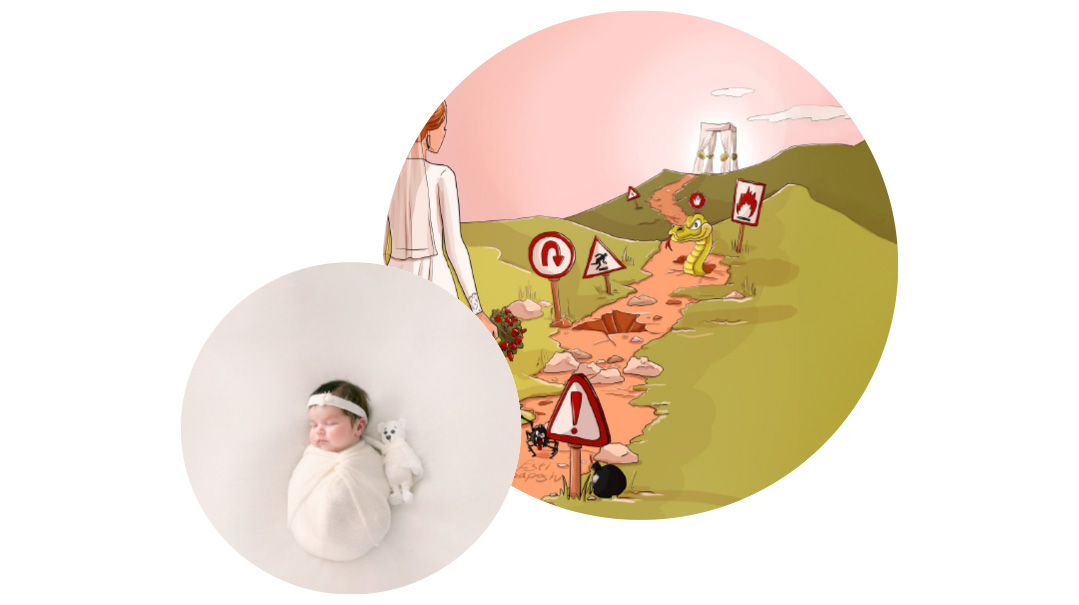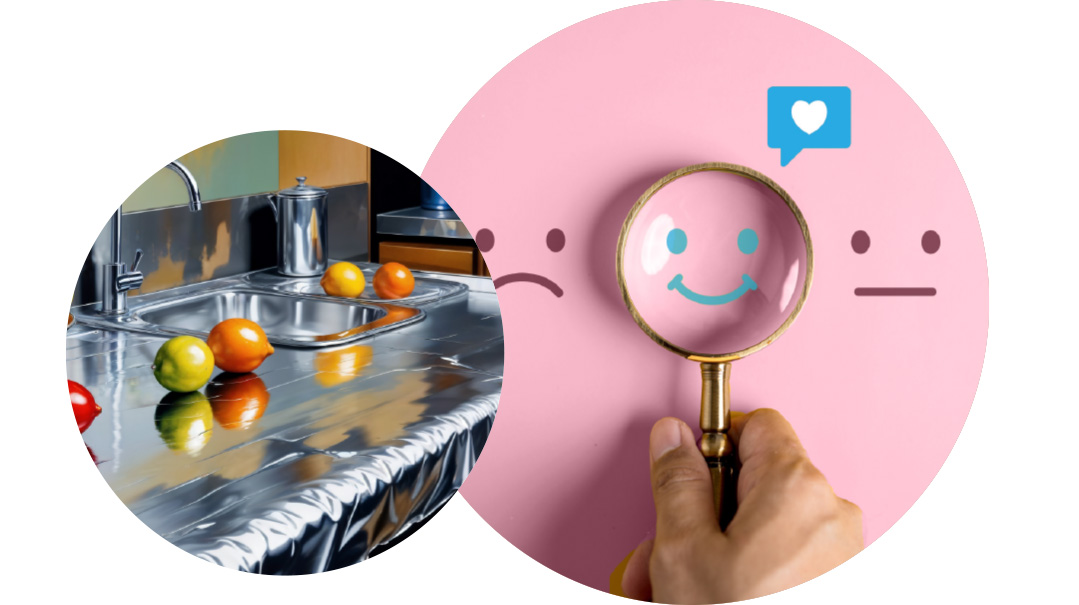Family First Inbox: Issue 877

“If anything is known to you and is so bothersome that it must be changed, this should be discussed before marriage”

You Can’t Change Your Spouse [The Rocky Road to the Chuppah / Issue 876]
In the article in which women shared stories of decisions they had to make while dating, Ariella from Manhattan discussed marrying a man whose appearance she didn’t like — she mentions his mismatched clothing and overgrown beard and clothing.
Right after they got married, she “asked” her husband to change his appearance, and when he didn’t she sent him to three rabbis, who agreed with her. She also now chooses all his clothing.
As presented, this is an example of a terrible approach to dating/marriage, and middos that are not very good. If anything is known to you and is so bothersome that it must be changed, this should be discussed before marriage. You don’t wait until afterward, and then demand (sending a brand-new husband to three rabbis is not asking) that he change.
I suspect that the rabbis he asked didn’t necessarily agree with his wife, but given the choice between making these changes or dealing with an upset wife all the time, advised him to make the wise choice. I wonder if he would have asked before marriage, what the answer would have been. This is probably why she waited until after marriage to make these demands.
I somehow doubt that he’s very happy with her choosing his clothes.
“My mentor was right. I’d take overgrown hair any day.” That’s not what your mentor’s advice meant. It means live with it because the whole package is worth it. Don’t force him to change it.
Troubled,
Woodmere, NY
Don’t Share with Friends [The Rocky Road to the Chuppah / Issue 876]
As two girls in shidduchim, we excitedly drank up this article about the challenges some people face finding their bashert. After going through similar experiences, it was so validating to see this in print. When you’re in the situation, you don’t notice how many red flags come up and whether something you’re unsure about is relevant or just you being dramatic or nervous. Therefore, it’s essential to talk it through with a mentor who’s seeing things from an objective vantage point and not from the mess of emotions you’re in.
There was one thing we picked up on that we wanted to scream out from the rooftops. The narrator of the first story mentions how she spoke to her friends, i.e., more than one. However important it is to talk things through, the more people you talk to, especially friends, the harder it is to wisely make a decision.
Yes, you’re close to your friends and want their advice and support through this overwhelming time. But often and dangerously, we’re swayed by what their opinions are or pressurized into getting engaged because of their involvement.
Tell your mother, tell your sister, or maybe even one or two mature friends, but shidduchim are sensitive and a life decision shouldn’t be made like you’re discussing which dress to buy. A good friend will celebrate with you at the end of the rollercoaster ride, even if she wasn’t with you dissecting and rehashing each date along the way.
May we all share in simchahs very soon!
Names Withheld
Not at Odds [Lifetakes / Issue 876]
I’m writing in response to the latest Lifetakes article by Lea Pavel, in which she comes to the conclusion that her mother had a lot of wisdom. There’s a lot of humility and beauty in being able to say, “Hey, I didn’t get it then, but you were so right!” Kol hakavod to her.
I want to comment on the final, ironic example that she brings. Lea describes how, when her son developed an “inexplicable terror of the kitchen,” she initially thought she should validate his fear, “as the new parenting gurus advise.” The school psychologist, however, told her to reassure her son by telling him, “You’re okay,” reminding her that words have power.
Although I’m not a “parenting guru,” I do have some parenting ideas. Letting a child know that their experience is valid and is seen, is crucial. When a child has a distressing experience it’s vital that someone is present with them, physically as well as emotionally in order to prevent the experience from becoming traumatic. A mother’s word has power, indeed.
I’d like to suggest that the “parenting gurus” Lea mentions and the school psychologist she consulted aren’t at odds. Their suggestions actually complement each other. An integrated response might look something like this:
“Ooh, I see you’re so scared of the kitchen! Wow, that’s hard! Come, it’s time for supper. We have to go into the kitchen, but I’ll be there with you. You’re okay!”
Her interpretation of the psychologist’s advice as being the same as her mother’s — “Don’t give things mamashus” seems like a stretch to me. Her acknowledgement of her child’s fear doesn’t create the fear. The fear is there. Denying it merely causes the child to be alone with the fear. Hence the importance of acknowledging the fear, then stepping in as a protective parent should and letting the child know that he is, in fact, okay.
Of course, only telling the child “You’re okay” without validating the emotional experience, on occasion, probably won’t cause damage. It’s a general attitude we’re after, and that’s the awareness I hope to raise in regard to this example.
Tzipora Schiffer, LCSW
Monsey, NY
Just One Tool [Picture Perfect / Issue 875]
I enjoyed reading the article on the history and accuracy of ultrasounds. Personally, I went through a similar experience when something abnormal was noted on my prenatal ultrasound at ten-weeks’ gestation. Based on the information, I was told by the doctors and my rav to abort the baby.
However, ultrasound is just ONE tool in the toolbox to guide decision-making. With further invasive and noninvasive testing, I was told my baby appeared healthy. While I endured tremendous stress and agmas nefesh for seven months, I baruch Hashem ultimately delivered a healthy baby.
As a NICU nurse, though, I’m extremely aware of the importance of prenatal ultrasounds. From a medical perspective, ultrasounds can prepare parents for a difficult diagnosis and give them time to plan management after birth along with their providers. It can prepare the delivery team and NICU for immediate needs after birth, offer an option of fetal surgery (e.g., to repair spina bifida), help manage twin-to-twin transfusion syndrome, and identify a baby that’s too large and at risk for shoulder dystocia.
Babies with cardiac defects need immediate intravenous access with medication (prostaglandin) to maintain patency of the blood-flow through their heart, babies with congenital diaphragmatic hernia (CDH) may be so sick at birth and require a ventilator immediately available with some needing ECMO on standby, and some babies with large neck masses may need intubation during the delivery process (known as an exit procedure).
Results from prenatal ultrasounds can allow parents to network, consult with experts, and transfer care to a top level NICU, which can greatly alter the baby’s outcome and results from birth onward.
Shevi Rosner
Clifton, NJ
NICU nurse, NY Presbyterian Children’s Hospital
Bigger than You Thought [Wait… You Live Where? / Issue 874]
I was delighted to see some of our community members here in Portland featured in your recent article about out-of-town communities. I wanted to call your attention to our recent demographic study that shows our Jewish community is notably larger than reported, 56,000+ Jews reside in the Greater Portland Jewish Community as of Fall 2022.
Anonymous
An Army of Women [Mothering under Fire / Issue 871]
We want to thank the amazing mothers of chayalim who contributed to the roundtable discussing what it’s like to have sons in the army. Thank you for giving us a glimpse into the emotions and the whirlwind of your daily lives. May Hashem protect your families both physically and emotionally.
We’d like to specifically address the sentiment that, “women who live in other communities... especially people overseas, seem to be somewhat removed from the reality of the war.” No doubt this is true. There’s a natural cognitive dissonance that many default to, whether or not they’re aware of it. There’s also an element that, try as we might, we can’t fully relate. We want you to know that despite this chasm of awareness, there’s an army of women waging battle from the spiritual frontlines.
The Amida Army was created from a strong desire to step up for our brothers and sisters as a unified front. Our initiative empowers women to try to daven one Shemoneh Esreh a day as a merit and protection for our chayalim, the hostages, and all of Am Yisrael. We created a website where women log their Shemoneh Esrehs, showing how each contribution adds to the larger whole, as well as a WhatsApp group where we post inspirational messaging and daily reminders to help maintain momentum. Rabbi Menachem Nissel also gave a special shiur about the power of Shemoneh Esreh (available on our website and on TorahAnytime.com).
In the article, Mimi shares “it really gives me chizuk to know that when we’re asleep, and some of the worst fighting is happening, in America they’re awake and davening.”
We want you to know that when you’re sleeping (or at least trying to), there’s an army of women who are going to battle for your sons from within their own homes. There are women who are rediscovering the Shemoneh Esreh and davening for the first time again in years. There are women who didn’t have the time before but somehow now are finding the time to daven for your boys.
We want you to know that although we are far — both physically and somewhat cognitively — your sons are our sons and your brothers are our brothers.
You’re not alone.
Rivky Litke and Adeena Polsky
Baltimore, MD
Chayal of the Day [Mothering Under Fire / Issue 871]
To the superhero mothers who have sons and sons-in-law in the army,
I read the article about you with absolute and total awe. It was hard not to cry, but it was Shabbos, so I had to fight back the tears.
It’s true, in America people may have the “luxury” of deciding how much they want to know and be involved, but the vast majority of people, I believe, are very deeply affected, desperate to do anything in their means, to ease the burden of acheinu bnei Yisrael in Eretz Yisrael.
I’d like to share an initiative we started as a family to support the army families in Eretz Yisrael. Each day our contact in a yishuv sends us a “chayal of the day.” It’s a name and picture of a specific chayal from the yishuv. Included is a short description of who that chayal is and what he does. We share this info with our family members. We print a picture of the chayal with his name to put on the wall in our home. Our family says Tehillim for the chayal (and other chayalim) together at dinner time. We’ve put up signs remind everyone to say berachos out loud and answer amen in the zechus of the Chayal of the Day.
Several family members use the picture as the lock screen of their phones so they remember to daven throughout the day. Before the day is over, we send pictures and messages back to the families of the chayal so they know that their son/father/brother/husband was in our tefillos that day. Several rebbeim in the family participate by posting the name and picture in their classroom, and the boys learn as a zechus for that chayal.
This has built a beautiful connection between families across the globe. We sometimes get messages back from the mothers or wives, and sometimes even from the chayalim themselves! We’re now expanding the program to include more yeshivos and schools. If anyone is interested in joining this program, you can contact us through Family First.
It’s our fervent hope and prayer that very soon we’ll have no need for this program. In the meantime, we are sending love, support, and the absolute utmost admiration to all the strong mothers who are “mothering under fire.” May HaKadosh Baruch Hu send you continued strength.
Your Fellow Mothers across the Ocean
It’s the Tachlis [Money Mindset / Issue 877]
I’m enjoying this serial, which is exploring money in a new way. I noticed the author using bitachon as a “tool” to feel secure about money.
Actually, bitachon is the tachlis... not a tool. We were put here in this world not to have a comfortable journey, i.e. to feel secure and safe, but to worship Hashem.... It does happen to be that when we worship Hashem, a by-the-way result is that we end up having it good in gashmiyus, too, but we need to be careful not to mix up our priorities.
Baila Vorhand
(Originally featured in Family First, Issue 877)
Oops! We could not locate your form.







